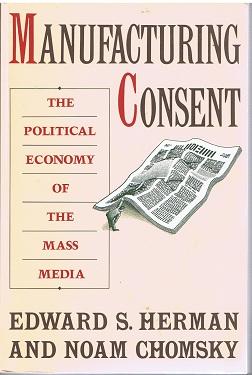Chiggs
Member
Originally published in July of 2016, The Case Against the Media. By the Media. is one of the best critiques of modern day news media that I've read. The article presents 53(!) points that clearly illustrate significant problems with the news. Featured prominently are authors, editors, journalists and media figures on both the right and left...and those in between.
The article is very, very long but well worth anyone's time.
I'll post a few to give you a sample:
The article is very, very long but well worth anyone's time.
I'll post a few to give you a sample:
The Case Against the Media said:1.
News is an entertainment business, even if it pretends otherwise.
“You can’t have drama without conflict. And you can’t have melodrama without good guys and bad guys. The problem for journalism is: Our actual problems are bigger, more complicated, more sprawling and complex, than good guys and bad guys. I don’t take any issue with the press attending to conflict. That’s Job One, actually. But the simplicity of the narrative is incredibly debilitating. News organizations chase simple narratives, and if they are prize-hunting, they look for an evil actor. Such folks can be found, to be sure, and a scandal is a scandal. But it is mortifying to realize that much of the press thinks exposing the overt scandal is the equivalent of examining, assessing, and arguing for systemic solutions to systemic problems.”
— DAVID SIMON, creator of The Wire and former reporter for the Baltimore Sun
2.
So it doesn’t know how to handle serious issues.
“When the only thing that’s consumed is the one-day tweet and the listicle and the ‘Seven Awesome Slams From the Obergefell Dissent,’ then there really isn’t time to do the piece that we need to do, which is, ‘Hey, I read all 80 pages of the opinion, and here’s what it means, and here’s why it matters, and here’s what the district court has to do going forward’ — all of that disappears. I had colleagues who, a day after reading King v. Burwell,the big Affordable Care Act case, when they had time to file a really deep-dive, thoughtful story, they were told, ‘It’s all played out. We had this conversation.’ ”
— DAHLIA LITHWICK, senior Supreme Court correspondent for Slate
“Can I add, ‘Blah, blah, fucking blah’? I like Dahlia Lithwick, I’m not going to rag on her, but you hear that a lot from reporters — ‘There’s so much meat out there, and we only cover the applesauce.’ It’s like, ‘Okay, but isn’t your job to explain clearly and in a compelling manner what’s important?’ It does seem like that’s inherent in the job description. This is the lecture I give to my reporters: Nobody has time to read. People barely can read. So you need to give them an overwhelming reason to read your piece. You need to grab them by the face and pull them in, and cover them in the hot stinky garlic breath of journalism until they fuckin’ wake up.”
— TUCKER CARLSON, founder and editor in chief of the Daily Caller
...
12.
Journalists are deluded …
“It’s a progress narrative. We want to imagine a kind of triumph of reason. If you’re in the business of finding out facts and reporting on things, you still have, especially in the American press, a kind of pseudo-religious commitment to this as the best way of knowing.”
— JEFF SHARLET, magazine journalist and professor of English at Dartmouth
...
14.
Rush their work …
“The major feature of the media landscape today is the acceleration of everything. Probably the most troublesome tension is the one between the need to file immediately, because a thousand other people are filing immediately, and the time it takes to do real reporting, to reflect on what you’ve got and then to write it in a way that’s fair and clear but doesn’t gloss over the complications. And that tension just seems to get more intense. I think one of the greatest casualties of the high metabolism of the news business is complexity. That’s a big loss.”
— BILL KELLER, editor in chief of the Marshall Project and former executive editor of the New York Times
Last edited:


